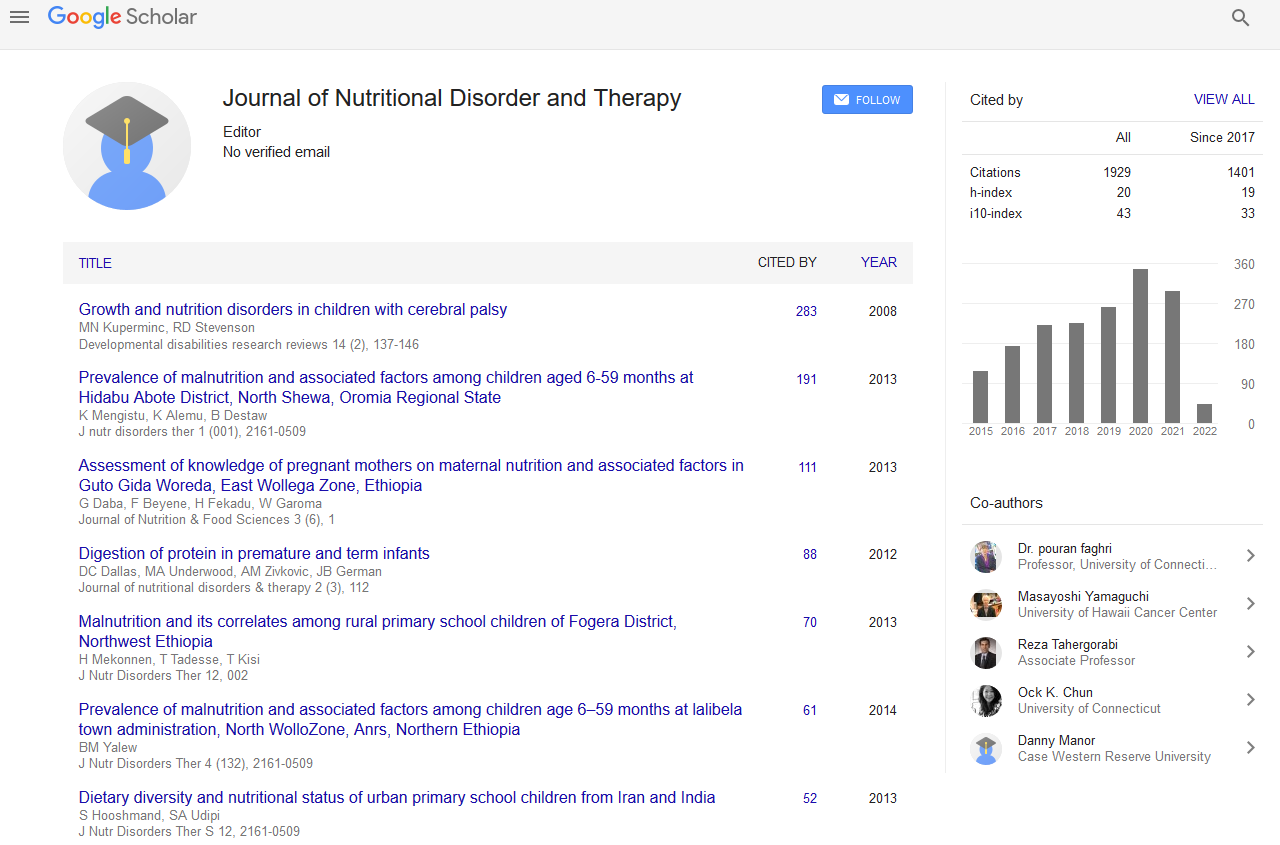Indexed In
- Open J Gate
- Genamics JournalSeek
- Academic Keys
- JournalTOCs
- Ulrich's Periodicals Directory
- RefSeek
- Hamdard University
- EBSCO A-Z
- OCLC- WorldCat
- Publons
- Geneva Foundation for Medical Education and Research
- Euro Pub
Useful Links
Share This Page
Journal Flyer

Open Access Journals
- Agri and Aquaculture
- Biochemistry
- Bioinformatics & Systems Biology
- Business & Management
- Chemistry
- Clinical Sciences
- Engineering
- Food & Nutrition
- General Science
- Genetics & Molecular Biology
- Immunology & Microbiology
- Medical Sciences
- Neuroscience & Psychology
- Nursing & Health Care
- Pharmaceutical Sciences
Abstract
Study of Extent of Transplacental Transport by Measuring the Levels of Magnesium in Maternal and Umbilical Venous Cord Blood and Correlation of Serum Magnesium Levels with Outcome of Pregnancy
Kharb S, Bhardwaj J, Goel K and Nanda S
Magnesium deficiency during pregnancy can induce not only maternal and fetal nutritional problems, but also consequences that might last in off spring throughout life. The status of maternal serum magnesium levels in adverse pregnancy outcome is not fully clear. Hence, the present study was planned to study maternal serum magnesium levels and to explore it correlation if any with low birth weight, preterm birth, and Apgar score in 102 pregnant women. Study samples (three ml) were drawn once before 20 weeks and second sample was drawn at the time of delivery in red vacutainer tubes. Serum was analyzed for routine investigations (hemoglobin, TSH, glucose challenge test) and magnesium levels (using thiazole yellow spectrophotometrically). At <20 weeks of gestation, 74 women had serum magnesium levels between 1.5-2.2 mg/dL (1.8 + 0.1 mg/dL), while 23 had serum magnesium levels >2.2 mg/dL (2.4 + 0.1 mg/dL) and 5 (4.9%) had serum magnesium levels <1.5 mg/dL (1.3 + 0.1 mg/dL). There was significant positive correlation between serum magnesium at <20 weeks with gestational age at delivery. Also, the correlation between serum magnesium at term with gestational age at delivery was positive and statistically significant. However, the correlations were not significant between maternal serum magnesium levels with baby weight at <20 weeks; at term and APGAR score at <20 weeks; at term. It can be concluded from the present study that periconceptional nutrition status is a key determinant of pregnancy outcomes and dietary modification might reduce the risk of adverse perinatal outcomes.


